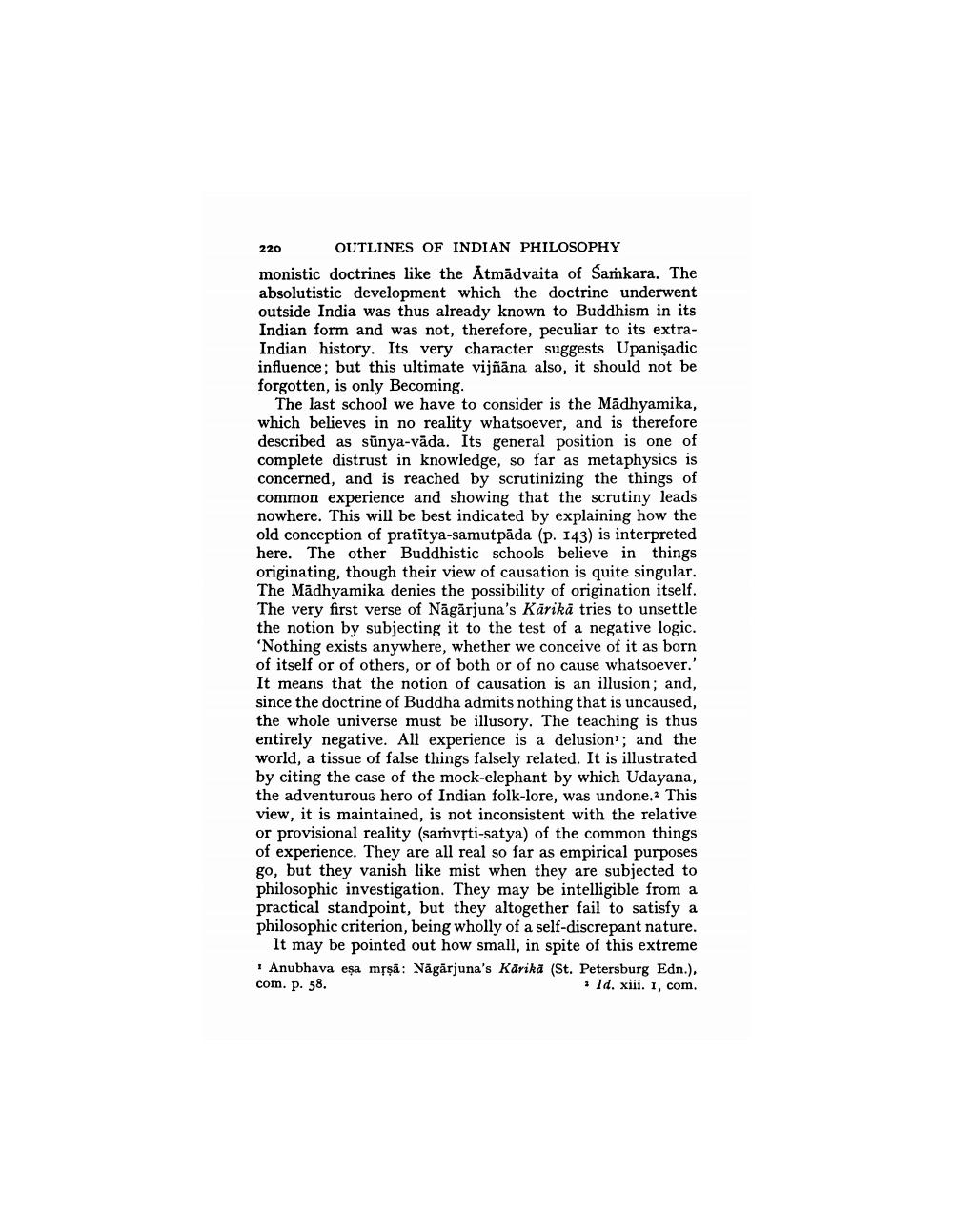________________
220 OUTLINES OF INDIAN PHILOSOPHY monistic doctrines like the Atmädvaita of Samkara. The absolutistic development which the doctrine underwent outside India was thus already known to Buddhism in its Indian form and was not, therefore, peculiar to its extraIndian history. Its very character suggests Upanişadic influence; but this ultimate vijñāna also, it should not be forgotten, is only Becoming.
The last school we have to consider is the Madhyamika, which believes in no reality whatsoever, and is therefore described as sūnya-vāda. Its general position is one of complete distrust in knowledge, so far as metaphysics is concerned, and is reached by scrutinizing the things of common experience and showing that the scrutiny leads nowhere. This will be best indicated by explaining how the old conception of pratitya-samutpāda (p. 143) is interpreted here. The other Buddhistic schools believe in things originating, though their view of causation is quite singular. The Mädhyamika denies the possibility of origination itself. The very first verse of Nāgārjuna's Kärikä tries to unsettle the notion by subjecting it to the test of a negative logic. 'Nothing exists anywhere, whether we conceive of it as born of itself or of others, or of both or of no cause whatsoever.' It means that the notion of causation is an illusion; and, since the doctrine of Buddha admits nothing that is uncaused, the whole universe must be illusory. The teaching is thus entirely negative. All experience is a delusion; and the world, a tissue of false things falsely related. It is illustrated by citing the case of the mock-elephant by which Udayana, the adventurous hero of Indian folk-lore, was undone. This view, it is maintained, is not inconsistent with the relative or provisional reality (samvști-satya) of the common things of experience. They are all real so far as empirical purposes go, but they vanish like mist when they are subjected to philosophic investigation. They may be intelligible from a practical standpoint, but they altogether fail to satisfy a philosophic criterion, being wholly of a self-discrepant nature.
It may be pointed out how small, in spite of this extreme Anubhava eșa mpșa: Nāgārjuna's Karika (St. Petersburg Edn.). com. p. 58.
* Id. xiii. 1, com.




